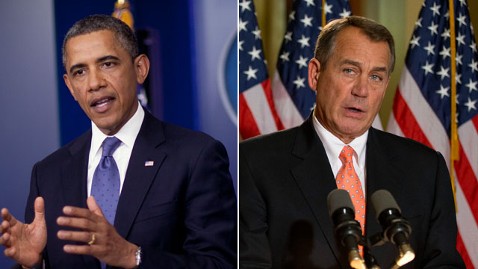STORY HIGHLIGHTS
- NEW: France considers sending Syrian rebels night-vision gear and body armor, a source says
- Britain's foreign secretary says the UK will announce new aid soon
- The statements after European Union loosens restrictions to allow nonlethal aid to rebels
- The U.S. will also send non-lethal aid to rebels for first time, plus $60 million in administrative aid
Rome (CNN) -- The United States stepped further into Syria's civil war Thursday, promising rebel fighters food and medical supplies -- but not weapons -- for the first time in the two-year conflict that has claimed more than 60,000 lives and laid waste to large portions of the country.
Meanwhile, European nations began to explore ways to strengthen rebel fighters that stop short of arming them after a European Council decision allowing such aid to flow to Syria.
U.S. Secretary of State John Kerry said the aid would help fighters in the high-stakes effort to topple Syrian President Bashar al-Assad, a conflict that has already spawned an enormous humanitarian crisis as refugees flee the fighting.
The ongoing fighting also poses the persistent threat of widening into a destabilizing regional crisis, including concerns that Hezbollah, Iran or others could gain control in Damascus after al-Assad's government falls.
"The United States' decision to take further steps now is the result of the continued brutality of a superior armed force propped up by foreign fighters from Iran and Hezbollah, all of which threatens to destroy Syria," Kerry said after meeting opposition leaders in Rome.
Kerry didn't say how much that aid would be worth, but did announce that the United States would separately give $60 million to local groups working with the Syrian National Council to provide political administration and basic services in rebel-controlled areas of Syria.
READ: U.S. weighing nonlethal aid to Syrian opposition
That's on top of $50 million in similar aid the United States has previously pledged to the council, as well as $385 million in humanitarian assistance, Kerry said.
"This funding will allow the opposition to reach out and help the local councils to be able to rebuild in their liberated areas of Syria so that they can provide basic services to people who so often lack access today to medical care, to food, to sanitation," he said.
Islamist Influence
That aid is partly an effort to hem in radical Islamist groups vying for influence in Syria after the fall of al-Assad, a senior State Department official told CNN.
"If the Syrian opposition coalition can't touch, improve and heal the lives of Syrians in those places that have been freed, then extremists will step in and do it," the official said.
Sheikh Ahmed Moaz al-Khatib, president of the Syrian National Council, said concerns about Islamist influence had been overstated.
"We stand against every radical belief that aims to target Syria's diverse social and religious fabric," he said.
READ: Inside Syria: Exclusive look at pro-Assad Christian militia
U.S. officials hope the aid will help the coalition show what it can do and encourage al-Assad supporters to "peel away from him" and help end the fighting, the official said.
The opposition council will decide where the money goes, Kerry said.
But the United States will send technical advisers through its partners to the group's Cairo headquarters to make sure the aid is being used properly, the senior State Department official said.
Additional aid possible
The European Council carved out an exception in its sanctions against Syria on Thursday to allow for the transfer of nonlethal equipment and technical assistance for civilian protection only.
The council didn't specify what kind of equipment could be involved.
British Foreign Secretary William Hague said Friday on Twitter that his country would be pledging new aid because "we cannot stand still while the crisis worsens and thousands of lives are at stake."
A diplomatic official at the French Foreign Ministry told CNN that France is studying the possibility of supplying night-vision equipment or body armor.
"It is in the scope of the amendment," the official said.
In the United States, President Barack Obama is thinking about training rebels and equipping them with defensive gear such as night-vision goggles, body armor and military vehicles, according to sources familiar with the discussions.
The training would help rebels decide how to use their resources, strategize and maybe train a police force to take over after al-Assad's fall, one of the sources said.
READ: Syrian army in Homs is showing strains of war
Kerry did not announce that sort of aid Thursday, but said the United States and other countries backing the rebels would "continue to consult with each other on an urgent basis."
An official who briefed reporters said the opposition has raised a lot of needs in the Rome meetings and the administration will continue to "keep those under review."
"We will do this with vetted individuals, vetted units, so it has to be done carefully and appropriately," the official said.
Humanitarian crisis
The conflict began with demands for political reform after the Arab Spring movement that swept the Middle East and Africa, but descended into a brutal civil war when the al-Assad regime began a brutal crackdown on demonstrators.
At least 60,000 people have died since the fighting began in March 2011, the United Nations High Commissioner for Human Rights said in early January.
Another 940,000 had fled the country as of Tuesday, while more than one in 10 of Syria's 20 million residents have been forced to move elsewhere inside the country because of the fighting, the Office of the United Nations High Commissioner for Refugees said.
The situation is nearing crisis proportions, with the dramatic influx of refugees threatening to break the ability of host nations to provide for their needs, Assistant High Commissioner Erika Feller told the U.N. Human Rights Council on Tuesday
"The host states, including Jordan, Lebanon, Turkey, Iraq, Egypt and the North African countries, have been exemplary in their different ways, but we fear the pressure will start to overwhelm their capacities," she told the council, according to a text of her remarks posted on the United Nations website.
Al-Khatib said it's time for the fighting to stop.
"I ask Bashar al-Assad for once, just once, to behave as a human being," he said. "Enough massacres, enough killings. Enough of your bloodshed and enough torture. I urge you to make a rational decision once in your life and end the killings."
READ: Syrian war is everybody's problem
Jill Dougherty reported from Rome, and Michael Pearson reported and wrote from Atlanta. CNN's Nick Paton Walsh and Elise Labott also contributed to this report.












